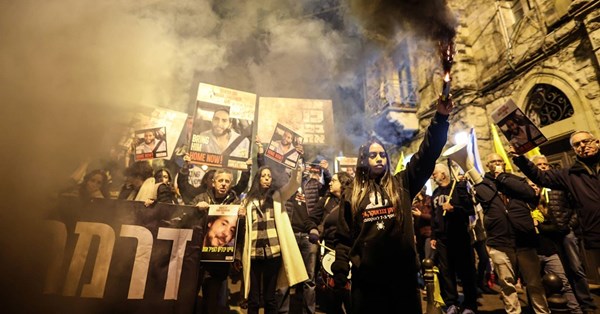A MINORITY of the Board of Deputies of British Jews broke ranks last week to make public criticism of Israel’s conduct of the Gaza War.
Thirty-six of the roughly 300 Deputies, in a letter to the Financial Times last week, criticised the Israeli government’s actions in Gaza, its approach to democracy, and its encouragement of illegal settlements in the West Bank. “Israel’s soul is being ripped out and we, members of the Board of Deputies of British Jews, fear for the future of the Israel we love and have such close ties to,” they wrote.
Although the letter was signed by only about ten per cent of the representatives of synagogues and community groups that make up the Board of Deputies, it was seen as a significant statement of discontent with the approach taken under the Prime Minister of Israel, Benjamin Netanyahu.
The letter suggests that the only effective way to secure the release of hostages by Hamas is to broker a ceasefire, and criticises the Israeli government for the breakdown of a deal that lasted two months and led to the release of dozens of hostages.
The resumption of fighting in Gaza has led to the deaths of “hundreds more Palestinians”, while no further hostages have been released — evidence, the letter says, that the “most successful way of bringing the hostages home and creating a lasting peace is through diplomacy”.
“Silence is seen as support for policies and actions that run counter to our Jewish values,” the signatories, who include the vice-chair of the Board’s international division, Harriett Goldenberg, wrote. They said that Passover, known also as the “festival of freedom”, was an apposite time to speak out.
The publication of the letter provoked a response from the President of the Board of Deputies, Phil Rosenberg. Although the Board “ordinarily” celebrated diversity of opinion within the Jewish community, “this case is different,” he said.
The letter reflected a “deeply regrettable loss of perspective” in its focus on the Israeli government, he argued. Hamas had also been responsible for the failure to renew the ceasefire. While the signatories represented a small minority of the Board, he spoke “for the organisation as a whole”.
On Tuesday, the online newspaper Jewish News reported that Ms Goldenberg had been suspended from her executive position on the Board. The next day, the Guardian reported that all of the signatories were subject to a complaints procedure.
A campaign group, We Democracy, responded to Mr Rosenberg, arguing that the Financial Times letter echoed majority opinion in Israel, where the “voices calling for a ceasefire and hostage deal are louder, broader, and more urgent than ever”.
“True solidarity with Israel means standing up for its democracy, for the Jewish value of pidyon shvuyim [redemption of captives] and for those bravely resisting extremism,” members of the group wrote in an article for Jewish News.
















